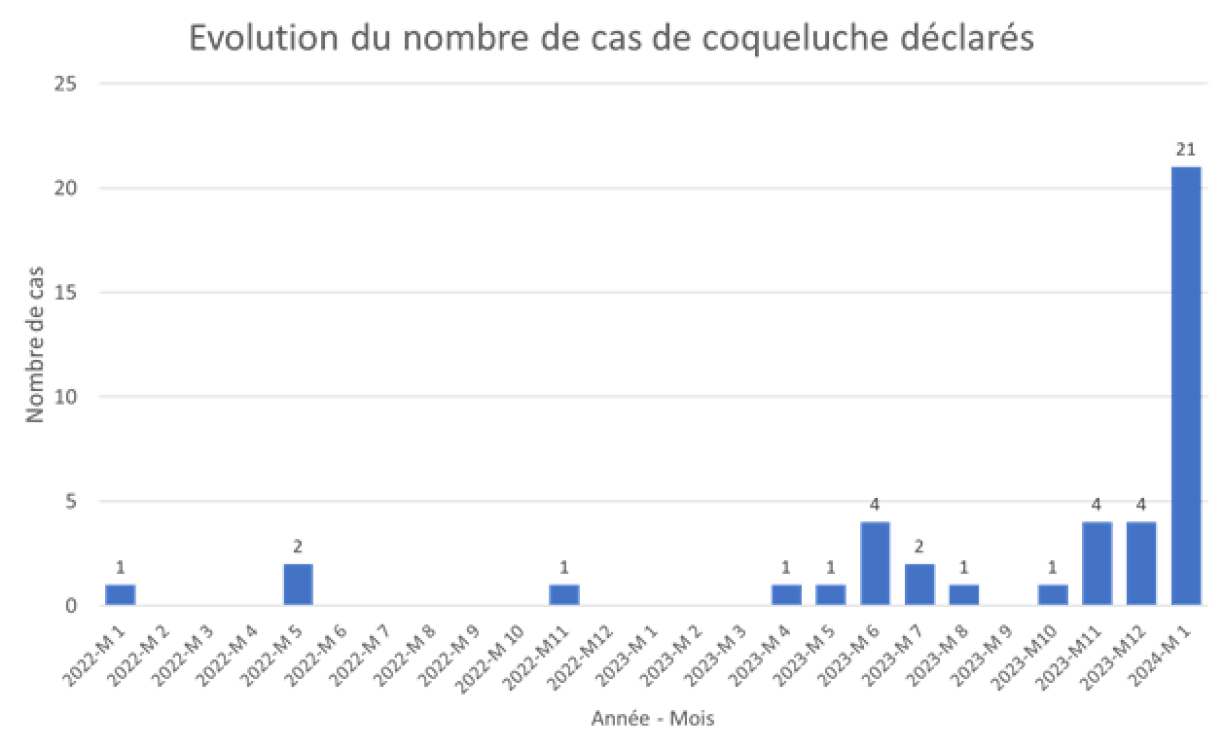
According to Dr Serge Allard, President of the Association of Luxembourg Paediatricians, while whooping cough has always been present, the recent surge of 21 new cases since the beginning of the year is unusual. In 2023, there were 18 cases reported throughout the entirety of the year.

According to the paediatrician, it is impossible to pinpoint the origin of this phenomenon. Dr Allard highlights that the current vaccination regimen involves doses at ages 5 and 15, leaving a decade-long gap where immunity gradually wanes, rendering individuals more susceptible to infection.
Whooping cough can persist for up to three months: “And it leads to really severe coughing fits, during which even tall people can break ribs,” according to Dr Allard. He underscores that while there may be no symptoms between these fits, they can occur multiple times a day.
Initial symptoms in young children resemble those of a cold, accompanied by fever and the aforementioned severe coughing fits, often resulting in vomiting or cyanosis, according to the National Health Directorate. In young people and adults, the cough may persist and worsen over time.
Dr Allard emphasises the importance of distinguishing between a normal cough and symptoms of whooping cough, urging healthcare professionals to remain vigilant.
Given its status as a notifiable disease, laboratories and healthcare providers are required to report cases of whooping cough. In response to the recent increase, the National Health Directorate has issued a recommendation to adjust vaccination schedules to administer vaccinations that would previously have been administered after ten years after five.
Additionally, a practice known as “cocooning” is advised, whereby individuals in close contact with vulnerable populations, such as parents of infants, receive vaccinations to shield those at higher risk of complications.